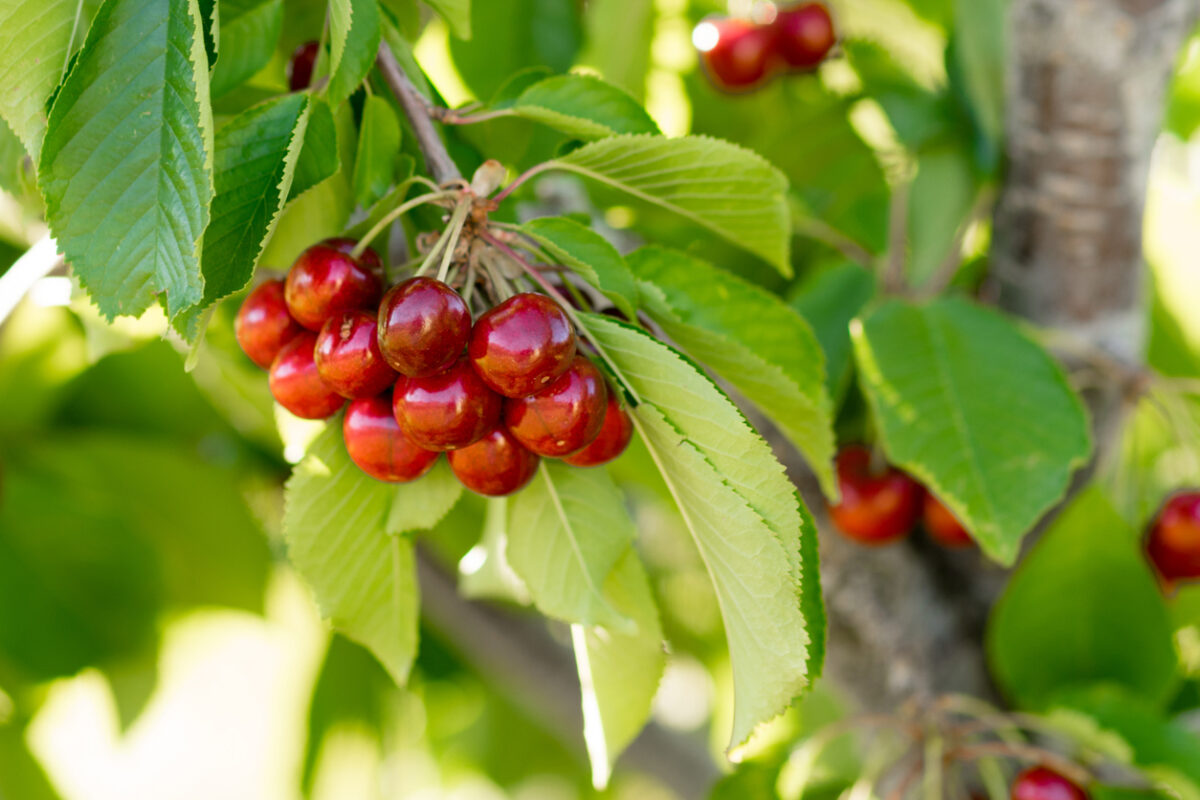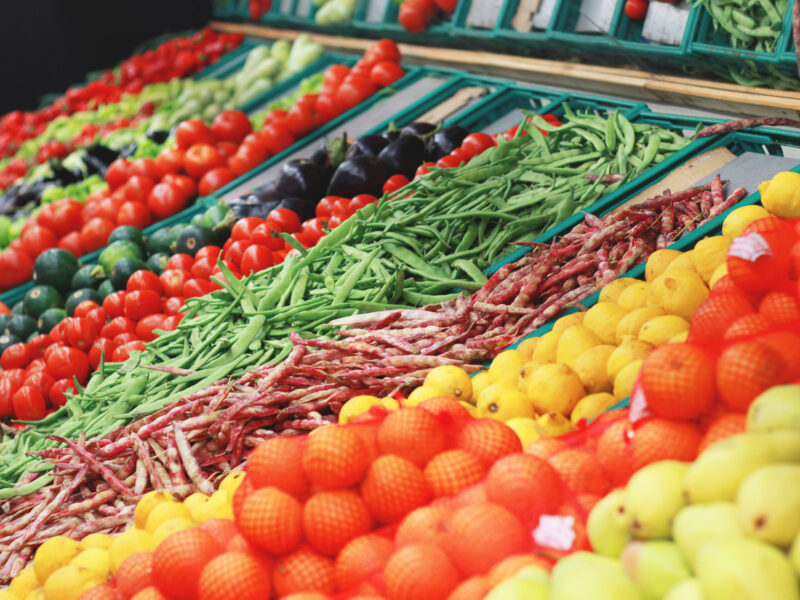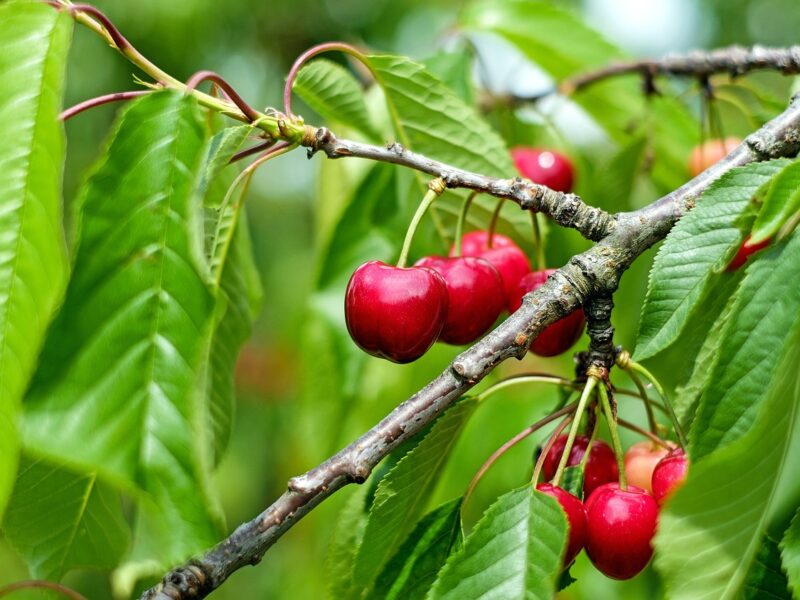Overview:
- Michigan's cherry industry faces heightened vulnerability as President Donald Trump's tariffs on imports threaten to raise input costs, impacting thousands of farms.
- Experts warn the state's specialty crop sector is at a 'tipping point,' with a 10% labor cost hike potentially resulting in over 1,600 job losses.
- In 2022, Michigan produced 180 million pounds of tart cherries valued at $36.5 million.
- However, the industry's global competitiveness is at risk due to rising costs for fertilizer and specialized equipment from abroad.
Michigan’s cherry industry is in a highly vulnerable position, experts agree, and President Donald Trump’s on-and-off tariffs aren’t making things easier for growers.
Michigan State University specialty crop experts say that the 10% tariffs on imports could slightly help the cherry industry compete, at best.
At worst, tariffs could accelerate the rise of input costs, including pesticides, equipment and fertilizer for cherry production, adversely impacting thousands of farms.
A March report from MSU found the state’s specialty crop industry is at a “tipping point” — a 10% increase in labor costs for growing, packing and processing of just one specialty crop could lead to a loss of over 1,600 jobs in the state.
If one crop had significant production losses, farms that use the same equipment, facilities and workers to harvest multiple specialty crops would be severely hurt in a “domino effect,” according to the report.
Michigan produced 180 million pounds of tart cherries with a value of $36.5 million in 2022, according to state records. That’s about 75% of the national total production, according to the U.S. Department of Agriculture.
Combined with severe weather that stunted cherry production in 2024, Michigan cherry farmers say their resiliency is being challenged.
A report from the state Department of Agriculture and Rural Development shows international demand was a big source of revenue for Michigan’s cherry industry last year, with agriculture exports increasing 11% to $2.9 billion since 2023.
But the department’s director, Tim Boring, said state officials are concerned whether retaliatory tariffs will make vulnerable Michigan crops less competitive in the world market.
The tariffs may help Michigan cherry farmers compete with major exporters like Turkey, however, according to the specialty crop study’s author, Chris Bardenhagen.
But any benefits would be marginal, wrote Bardenhagen, who is a farm business management educator at MSU’s Leelanau County Extension office.
Turkey exports cherry juice below the cost of production in Michigan, meaning its prices would still beat local growers’.
“I would expect it to take a couple years to level out and see if future differences will be substantial or not,” Bardenhagen said.
Another MSU agricultural economics expert, professor David Ortega, said the specialty crop sector will be hit hard by increased costs for fertilizer and specialized farm equipment from overseas.
Even with the possible cancellation of many of the administration’s proposed tariffs, Ortega said other countries may still retaliate against the United States.
“All this uncertainty and unpredictability makes it very difficult for farmers and agribusiness to plan with regards to potential investments and other decisions,” Ortega said, “especially after a tough year for cherries.”
Mike Deruiter of Deruiter Farms in Hart said the value of his cherries has dropped over 40% since 2015 — trade policy, weather and rising labor costs squeezed his profit margins.
International competitors are driving prices down, he said, and many farmers in his area view the tariffs as “short-term pain, long-term gain.”
“‘Cautiously optimistic’ is the word I’m using more frequently as time goes on,” Deruiter said.
learn more
How Trump’s tariffs are set to raise Michigan grocery prices
Trump’s tariffs on imports could lead to a 2.8% increase in food prices, disproportionately impacting low-income households and complicating decision-making for food companies and farmers.
Climate change wreaks havoc on Michigan’s cherry industry
Michigan’s cherry farmers face volatile weather and rising costs, causing fungi and pests to surge, resulting in up to 75% crop loss this season.
Federal aid to rescue Michigan cherry farmers after devastating crop loss
Michigan sweet cherry farmers can now access low-interest emergency loans from the USDA’s Farm Services Agency. This aid follows the U.S. Department of Agriculture’s disaster declaration in Antrim, Grand Traverse, Leelanau counties, and eight neighboring counties, due to crop losses from erratic weather and pest infestations.
Boring said overall sentiment surrounding tariffs differs among farmers. While many cherry growers view poor market performance as the result of foreign competition, few agree on the solution.
In early April, Elmwood Township cherry farmer Don Gallagher spoke to a crowd of over 4,000 in Traverse City in opposition to the Trump administration’s trade policies.
In an interview with Capital News Service, Gallagher said Trump’s first round of tariffs in 2018 are still having significant adverse impacts on his farm.
“The future of cherries depends on pricing – it’s only been downhill,” he said.
Regardless of federal policy, Gallager and other experts said the outcome of this year’s cherry season will depend primarily on nature.
In 2024, Michigan cherry orchards lost 75% of their yield to bad weather. The season was officially declared a disaster by Gov. Gretchen Whitmer, with federal loans distributed to keep farms like Gallagher’s in operation.
The March 2025 ice storm missed orchards for the most part, Gallagher said. But similar weather downed and froze cherry trees in 2012.
It was the worst year in the U.S Department of Agriculture’s record for cherry production since documentation began in 1926.
Facing uncertainty, Boring said the Department of Agriculture and Rural Development will continue addressing “real-time” policy impacts by supporting agricultural assistance programs and community investment.
Deruiter and Gallagher said they hope for relief from national legislation that would freeze the wages of H-2A migrant farm workers.
Michigan cherry packers “virtually rely on” migrant employees, Deruiter said.
H-2A employee wages are currently set at $18.15 an hour by the U.S. Department of Labor through the Adverse Effect Wage Rate, intended to account for extra transportation and housing costs migrants incur.
The legislation, introduced by U.S. Rep. John Moolenaar, R-Caledonia, would keep wages at the 2023 rate of $17.36 an hour through the end of 2026.
Another major hope for farmers is to see new cherry products hit the market at an affordable price point, Gallagher and Deruiter said.
In the past, other products, like tart cherry juice, were popularized by the Cherry Marketing Institute to increase demand for Michigan cherries.
New product campaigns are in the works, Deruiter said. “We’re hopeful that there’s something that can generate a profit to put back into the industry.”





